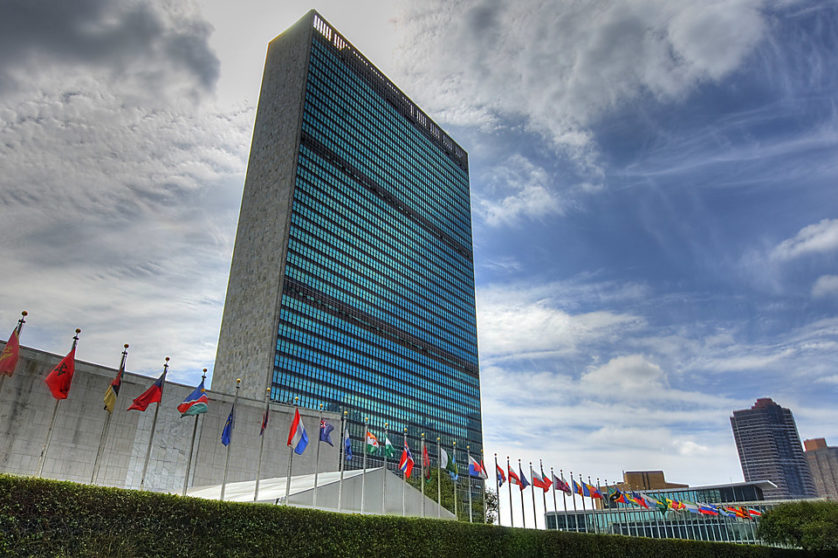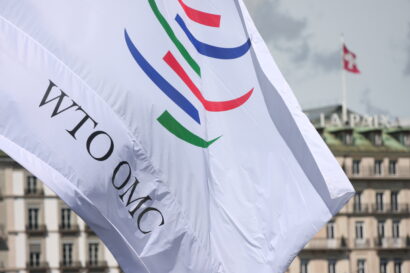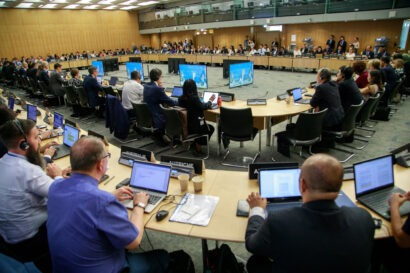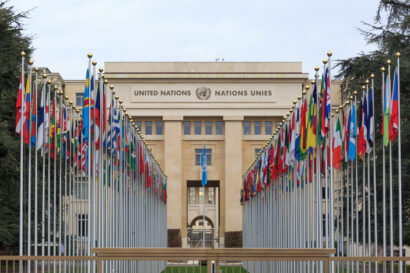As the current membership of the UN Tax Committee meets for the last time this week, Abdul Muheet Chowdhary examines how it can be reformed to better serve the interests of developing countries.
The UN Tax Committee
Nestled within the UN’s Economic and Social Council is a little-known but vitally important subsidiary body with the lengthy title of “Committee of Experts on International Cooperation in Tax Matters,” popularly known as the UN Tax Committee (UNTC).
The UNTC is responsible for reviewing and recommending standards on international taxation – the rules through which non-residents, and multinational corporations in particular, are taxed. In a world where multinational profit shifting is estimated to cost countries up to $300 billion in revenue per year, these standards are critically important for enabling countries to raise the revenue necessary for financing sustainable development.
As the only standard-shaping body that sits within a genuinely universal organisation, the UNTC has a crucial role to play. The other major body, the OECD, remains an organisation ultimately controlled by 37 of the world’s richest countries. With the UNTC’s membership almost evenly divided between developed and developing countries, it is the only body where something close to a level-playing field exists.
Though far less resourced than the OECD, the UNTC has performed admirably, producing valuable standards and practical guidance for developing countries on the negotiation of bilateral tax treaties, transfer pricing, and the taxation of the extractive industries.
The recent sessions of the Committee have seen a spurt of activity as some of the more active Members, all from developing countries, have taken the lead in finding solutions to burning issues of the day. Nowhere has this been more apparent than in the taxation of the digitalised economy, arguably the single most important issue in international tax today.
While the OECD, with its enormous resources and Secretariat, continues to struggle to find a practical and acceptable solution through its “Inclusive” Framework, the more modest UNTC has come out with a simple and realistic proposal for taxing income from Automated Digital Services, which was prepared entirely by developing country members.
These outcomes have been achieved not because of the UNTC’s structure but rather despite it, and can be attributed to the drive and initiative of several committee members. However, it is unwise to rely on individuals. What is needed is a structure that facilitates such outcomes as a matter of course and enables the UNTC to fulfill its potential. This piece puts forward recommendations for how the UNTC can better fulfil its mandate.
Candidates for appointment should be capable and committed
As the UNTC is a Committee-driven body, the most important aspect of its functioning is the selection of its Members. Having passive Members who do not or cannot perform their duties effectively means that their engagement is reduced to simply approving Committee documents without substantively contributing to them. This is unfortunate because even though the Members are individuals serving in their expert capacity, they are nominated by countries and reflect national experiences.
In order to contribute substantively, candidates must have expertise in international tax matters such as exchange of information or transfer pricing, and practical experience in tax treaties. They should also have a track record which proves their commitment to the issue.
Sometimes, Committee Members are re-appointed for the next term, but at present this process is not transparent. Given its importance, only Members who have contributed value to the UNTC’s work should be reappointed. In order to ensure this, some criteria and procedures should be developed, including a feedback mechanism that takes into account the views of Observers and the UNTC Secretariat. The UN can then share these assessments with countries when asking them to nominate or re-nominate candidates.
Committee Members should be better supported
Members of the UNTC are tax officials working with their governments but are nominated in their expert and individual capacity, so their work is not counted as “official” in the eyes of their governments. With UNTC work seen a personal responsibility that eats into official duties, Members are often unable to devote adequate time to their Committee obligations.
It is therefore very important that UNTC Members’ work be given due recognition and support from their governments. It would be good if domestic tax administrations can provide resources and staff time to their Members, something on which the UN could issue guidelines in order to encourage adequate support.
New Members should also be given an introduction to the UNTC and how it works. I strongly recommend that outgoing members provide a kind of handover and share their insights and experiences with new members to help them understand the formal and informal workings of the UNTC and how to function effectively within it.
Improving the functioning of the UNTC
Staffing of the Secretariat: The composition of the Secretariat is very important as it works full-time and continuously on the Committee’s work. So far, the Secretariat staff, especially for the core work of the Committee, comprises largely former OECD officials or officials from developed countries. The reality of this means it is easier for OECD standards proposed by developed country Committee Members to find their way into the UN Committee. To balance this, the Secretariat staff should have much larger representation from developing countries. There is no dearth of talent.
A measure to help achieve this is to decrease the emphasis given to knowledge of multiple UN languages when hiring. It should be enough for eligible candidates who know the subject to speak one UN language. The hiring policy should be therefore be adapted in order to prevent over-representation of nationals of former colonial powers and under-representation of nationals from developing countries.
Agenda and meetings: Inputs from UN Member states should be solicited, and the agenda should then be decided by the UNTC Members. One of the compromise outcomes of the 2015 Addis Ababa conference on Financing for Development was to increase the number of Committee meetings to two per year instead of just one. However, this is not nearly enough for the work to get done, and decisions on many issues get delayed. Therefore, the number of meetings should be increased, with the flexibility to have additional Sessions if required.
Conclusion
The recommendations made here are not major, but have the potential to greatly improve the UNTC’s functioning so it can better fulfil its mandate. This is critically important for achieving more balanced and effective international tax standards for a world in dire need of public funds to combat Covid-19 and finance the recovery.
A longer version of this piece was originally published as a policy brief by the South Centre. This version was written with support from Rhiannon McCluskey.



